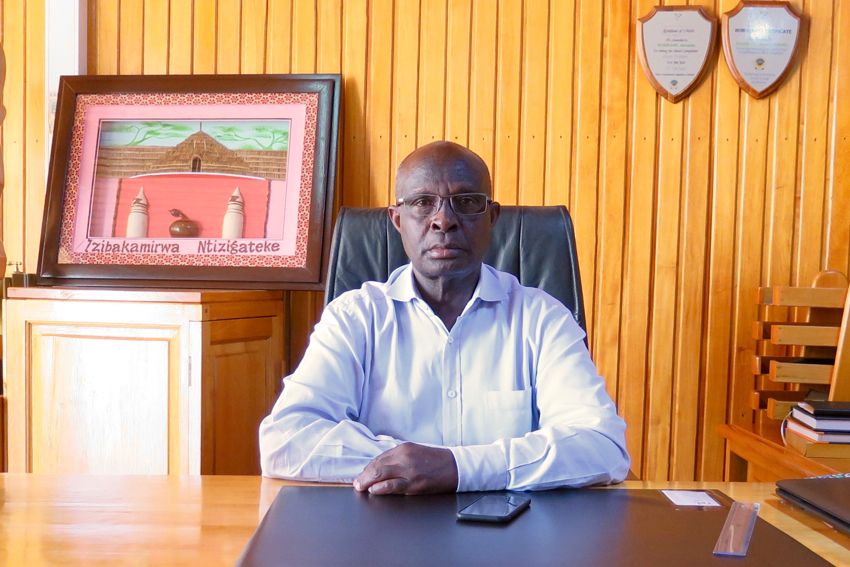Number one in Rwanda’s painting business, and with various other business interests besides, Ameki Color is renowned for its focus on using local materials and people to develop and add value to its products, to ultimately sell in the domestic market and boost the local economies. CEO Jacques Rusirare provides more details and also highlights where foreign investors would be wise to take a look.

We are experiencing an ‘Africa Rising’ momentum: what has Africa to offer that is attracting so much investment?
It is because it is still kind of a new place, there are not many industries on the continent and there is still a lot to be done. We also have the raw materials and the demographic bonus.
The biggest asset Africa has to offer is its people. By 2040, the continent is projected to boast the largest labor force in the world – 1 billion workers strong – and more than China and India combined. What are the challenges and how should they be addressed?
We should add value to our raw materials, process them, and that can create the necessary employment for all these people.
Industrialization is key, as is regional integration to tap your neighboring markets.
The first thing is to have the technology to be able to transform our raw material, be it in agriculture, mining, and so on – anything that can be transformed to be sold to those countries. We need to be able to make those products we import ourselves, and to enable that we need technology.
The government is making great efforts to enhance the ease of doing business and have a more conducive environment. How would you describe today’s investment environment?
Indeed, lots of efforts are being undertaken to increase investment in Rwanda. We need to increase those efforts and especially to improve how they are being implemented; the execution of those plans has to be improved. But overall the environment is very good.
The history of Ameki dates back to 1982. What are the milestones achieved by Ameki Color in its more than three decades of activity and what plans do you have for the future?
Ameki stands for Atelier de Meubles de Kigali. We started as Ameki Meuble, our furniture division in 1982, and then Ameki Color followed in 1989. After, during the ‘94 genocide, 80% of the company was destroyed, so we had to start from scratch and rebuild the company and take it to what it is now.
In the future what we are hoping for is to fulfill the local demand first and then serve the neighboring countries. Later on we want to be a public listed company so that other people can invest in it.
With all the impressive development we see in Rwanda today and the construction boom, how is Ameki taking advantage of it?
We take advantage of it as we manufacture construction materials: paint, furniture, doors, and so on, so obviously we took advantage of this momentum. In the painting business we are number one in Rwanda.
You once said, “Our aim is self reliance... help from our partners should be an addition to our own contribution.” How would you say Ameki represents the ‘Made in Rwanda’ spirit?
We are known for manufacturing different products locally, not only paints, but for example to make them we source local materials, add value to them, process them and create the final product in Rwanda. We also make water tanks. Whatever we can do locally, we do it here; we are always looking at what we can build locally and we do so.
At the 18th Rwanda International Trade Fair 2015 you received recognition for being the best in the manufacturing sector. What is the key to having such an outstanding business?
We invest in machinery, in technology and in our workers to offer the best quality products, and are always trying to increase our capacity. We recently invested in German machinery, which helped us not only to increase our production quite a bit but also quality. We are also always trying to be close to our customers.
Ameki is a responsible company giving back to society, for example contributing to the Agaciro Fund. What is the responsibility of companies such as Ameki to support the society in which they operate?
We have a big responsibility and always try to participate in as many of these programs as possible. We support in different ways, from giving to the Agaciro Fund or supporting students with school fees, to giving cows to families as part of the Ngirinka program (one cow per poor family), which was put in place by the President to fight poverty.
What opportunities would you highlight to US investors?
There are a lot of opportunities in Rwanda as there are a lot of things to be done, for example in agriculture, energy, infrastructure, and so on. Rwanda is still a green field with a large and ready market as many things are still imported. We have a lot to offer. And investing in Rwanda is investing in the region; you have also to look at the regional level. We are a gateway to the East African Community and the Economic Community of the Great Lakes Region (ECGLC).
President Kagame said that the country’s entrepreneurs form a great pillar on which the economy is built, and through their efforts, greatly contribute to the development of the country. Being one of Rwanda’s most prominent entrepreneurs, how would you describe the Rwandan entrepreneurial character?
We are hard working. I would say we have three objectives, which are to make profit, to pay taxes to make our country move forward, and employ our people to enhance their lives.
0 COMMENTS